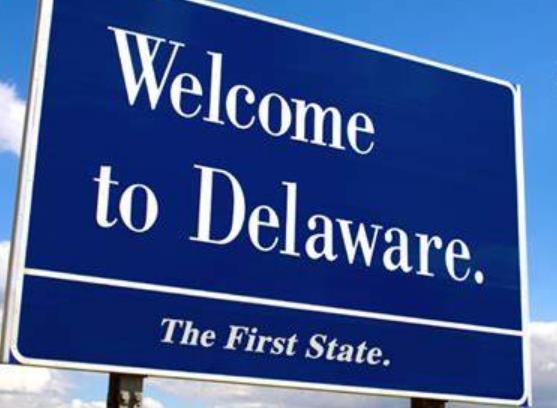Delaware’s much-anticipated adult-use marijuana market, set to launch this year, now faces a potential delay due to an unresolved issue with the FBI. The delay stems from a hiccup in the approval of a crucial fingerprinting system needed for background checks of cannabis industry participants. While state officials had hoped to begin licensing recreational cannabis businesses by April—nearly two years after legalization was passed—the timeline now hangs in the balance.
State regulators had planned to roll out licenses for the first recreational cannabis businesses in April, following Delaware’s legislative approval of adult-use cannabis in 2023. However, as the clock ticks, a key hurdle remains. The Office of the Marijuana Commissioner (OMC), tasked with regulating the market, still lacks approval from the FBI to establish a fingerprint background check system—a requirement laid out in the state’s legal framework.
The Core Issue: Fingerprint Background Check Approval
In order to comply with Delaware’s marijuana statutes, anyone wishing to participate in the state’s adult-use cannabis market must undergo a criminal background check, which includes fingerprinting. For years, Delaware’s medical cannabis program has relied on the FBI’s approval of this system. However, the FBI’s refusal to grant approval for the same system under the adult-use program has raised concerns. The agency’s decision to reject the initial application has thrown a wrench into the well-laid plans for the state’s recreational cannabis launch.
As the news spread, the FBI clarified that it had rejected the first application because it did not “qualify pursuant to federal law.” This decision has led to confusion and frustration, particularly since the same criteria were used for the medical cannabis program, which was approved without issue. The state had hoped the approval process for adult-use marijuana would follow suit, but instead, regulators now find themselves in a standstill.
According to a report from Spotlight Delaware, state officials initially indicated that the FBI had blocked the approval, but this was later clarified. The original application was rejected for reasons that remain unclear. Since then, the OMC has resubmitted a revised version of the application, hoping for a positive resolution.
Keila Montalvo, a spokesperson for the OMC, expressed concern over the situation, saying, “It is important to note that a previous bill [for medical cannabis] with the same [fingerprint background check] criteria had been approved, and we sought clarification and reconsideration of the FBI’s determination.”

A Stumbling Block or Temporary Setback?
While marijuana remains illegal at the federal level, the issue with the fingerprinting system is not an outright reflection of the broader state-federal marijuana policy conflict. Delaware’s medical cannabis program had previously secured FBI approval for a similar system without issue. This raises the question: what changed between the two programs? Why is the adult-use system encountering roadblocks when the medical marijuana system did not?
For now, it’s unclear whether the delay will be a matter of weeks or months. But one thing is certain: the state’s regulators are doing everything they can to resolve the matter as quickly as possible. They are hoping that a resubmission will clear the way for the market to open as planned, allowing businesses to apply for licenses and begin preparing for their opening.
The issue is particularly frustrating for businesses hoping to enter the new market. With the law already passed and the regulatory framework in place, many are eagerly awaiting the chance to get involved. The delay means that these entrepreneurs will have to wait longer than expected before they can start operating, potentially losing out on valuable time in the fast-moving cannabis industry.
It’s worth noting that Delaware is not the only state experiencing challenges related to the intersection of federal and state marijuana laws. Several states have encountered similar issues, particularly when it comes to securing federal approval for cannabis-related activities. The unique challenges that Delaware faces, however, stem directly from the need to navigate the federal system while still advancing the state’s efforts to open a legal adult-use marijuana market.
What’s Next for Delaware’s Adult-Use Market?
For now, the delay continues to be a setback rather than a full-on roadblock. But as the state’s marijuana regulators continue to work with the FBI to resolve the issue, the future of Delaware’s adult-use cannabis market is in limbo. If the resubmitted application is approved in the coming weeks, the state will likely proceed with its plans to issue licenses and roll out the recreational market in short order.
In the meantime, many are left wondering how this hiccup will affect the broader national cannabis landscape. With cannabis legislation gaining momentum across the country, the delay in Delaware serves as a reminder that even in states that have embraced adult-use marijuana, challenges persist. Whether this is a temporary setback or a larger signal of things to come is still up in the air.



